Having recounted how Jimmy had been found (see The Finding), The Bugle article, of 14 June 1894, went on to describe his early life with the 2nd Battalion.
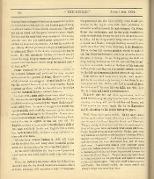

He ’caused great amusement… by his quaint expressions. At first he could only say “Bonsy Morto” pointing his finger or a stick at those he addressed. Morto is the Arabic expression to denote death. He was absolutely fearless and would wander round the camp being no respecter of persons. His usual request was “aus laben” which being interpreted means “I want milk”.’
The soldiers regarded Jimmy as a ‘pet’
, they treated him kindly and ‘he was the especial favourite of the kind-hearted Scotch Sergeant (Sergeant Stuart). He performed the long marches seated astride the pommel of Sergeant Stuart‘s saddle, on which a blanket was strapped.’
In June 1886 ‘some native women were asked his age. By this time he could speak English, and had the strongest objection to being touched by the ‘nasty black women’ as he called them. In spite of his struggles his mouth was opened and his teeth carefully examined by two women, who pronounced his age to be 18 months. It was calculated that his birthday would be about 1st January 1885 – To English mothers it must seem incredible that a child of two years could talk Arabic and English, ride a horse bare back to water daily, and give a song and dance on a barrack room table.’
The article remembers that when the Battalion received orders to go to India, it was intended that Jimmy should be left in a mission school in Cairo. The sergeants, however, objected and promised to ‘subscribe monthly towards his maintenance.’ Sergeant Stuart
was ‘heartbroken at the thought that Jimmy was not to be allowed to come to India.’
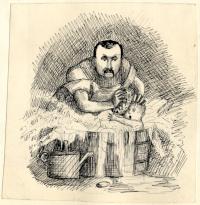

The name ‘Jimmy’, the article claims, derives from ‘old Jim Birley, his first nurse’
who ‘had as much affection for the boy as if he were his own child’
and would give him ‘his daily bath by first soaping him all over and then standing him in a stable bucket at the door of his tent and ladling water over him out of a cavalry canteen.’
Many years later, de Lisle recalls his finding of Jimmy and what subsequently happened to him:
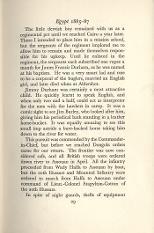

‘The little dervish boy remained with us as a regimental pet until we reached Cairo a year later. There I intended to place him in a mission school, but the sergeants of the regiment implored me to allow him to remain and made themselves responsible for his upkeep. Until he enlisted in the regiment, the sergeants each subscribed one rupee [a rupee was worth about 1s.4d., or 7p., roughly a day’s pay] a month for James Francis Durham, as he was named at his baptism. He was a very smart lad and rose to be a corporal of the buglers, married an English girl, and later died when at Aldershot.’
There is some dispute over some of de Lisle’s statements here, since the existing records seem to suggest James remained a private, not a corporal, and possibly played the clarinet rather than the bugle. He certainly died in Ireland, rather than Aldershot.
He continues: ‘Jimmy Durham was certainly a most attractive child. He quickly learned to speak English, and when only two and a half, could act as interpreter for the men with the hawkers in camp. It was a comic sight to see Jim Burley, who looked after him, giving him his periodical bath standing in a leather horse-bucket. It was equally amazing to see this small imp astride a bare-backed horse taking him down to the river for water.’
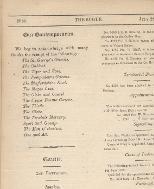

In this issue of the Battalion’s magazine, Jimmy’s enlistment into The Durham Light Infantry is recorded: ‘Territorial Number 6758 has been allotted to Boy James Francis Durham’
He would have been about 14 years old at the time.
Jimmy was partially brought up with the family of Sergeant, later Major, R. Robson, whose daughter, Stella, he regarded as his sister:
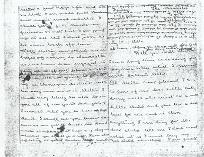

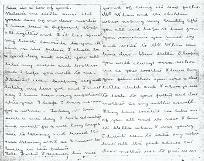

Dear Stella I hope you will always reckon me as your brother I have know you from when you was a dear little child and I always use to look to your father and dear mother as my mother as well. They have treated me like one of you all.’
He remarked how the death of Mrs Robson had ‘opened my heart towards you all’
, making him realise ‘all the good advice our dear mother use to give us as done us a lot of good’
, even though ‘when I was young I didn’t seem to take any notice.’
He wrote the letter from Cork, Ireland, where he was stationed with the 2nd Battalion The Durham Light Infantry, and describes a visit to the Blarney Stone. He hopes to visit Stella soon:
‘Our band are in hopes of coming to Newcastle as we have been engaged to play at different places and I believe we are going to finish up at Darlington … I shall be very likely to be able to see you all …and I would like you to hear our Band.’
He did manage to meet Stella, since he sent her a postcard on 3 August referring to getting safely back. ‘Jenny left her umbrella behind last night so I am asking you if you could fetch it through with you if you come tomorrow & Jennie will meet you all.’
Jenny is presumably his wife, Jane Green of Bishop Auckland, whom he had married in Newcastle on 25 July.
In his letter, Jimmy also refers to coming to London ‘for 4 or 5 days to represent our battalion Army Temperance Association and expect to get the Award of Merit … It is a very high honour to get Stella and it will be presented to me by Field Marshal Lord Roberts.’
He ran the Army Temperance Association for the 2nd Battalion, and on 14 May 1908 won the Conrad Dillon Challenge Plate for the highest percentage of membership in the Army. ‘The Times’ of 15 May 1908, page 12, records the occasion, at the anniversary meeting of the Royal Army Temperance Association in London. The Association had over 74,000 members and its success could be seen in the reduction of courts martial for drunkenness from 545 in 1901 to 217 in 1906. A bandsman colleague, Charles Henry Chester, who also played the clarinet, recalls how, outside the Victoria Barracks in Cork, Ireland, was a public house, where Jimmy rented rooms for the Temperance Association to meet. Unfortunately, many of the troops who flocked to join went, instead, into the bar to drink beer.
See a Transcript of Letter from Jimmy Durham to Stella Robson 17 April 1908..
While in Newcastle with the Band, Jimmy married Jane Green of Bishop Auckland, whose brother was a Quartermaster Sergeant with The Durham Light Infantry.

They married at Newcastle Register Office on 25 July 1908. Their marriage certificate shows that Jimmy was unable to supply any details of his father to the registrar who married them.
See details from Jimmy and Jane’s marriage certificate.
The Digest of Services of the 2nd Battalion The Durham Light Infantry, records the sad news of the death of Jimmy Durham on 8 August 1910, while in Ireland:
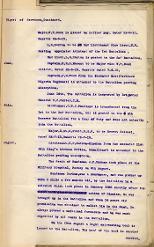

‘The death of Bandsman J.F. Durham took place at the Military Hospital, Fermoy on 8th August.’
‘Bandsman Durham, was a Soudanese, and was picked up when a child a few months old, by the Battalion in a skirmish which took place in January 1885 [in fact, 1886] shortly after the action of Ginnis. He was brought up in the Battalion and when 14 years old permission was obtained to enlist him in the Band. He always proved a universal favourate [favourite] and his loss was much regretted by all ranks in the Battalion.’
See a Transcript of Digest of Services, June – August 1910 (D/DLI 2/2/15).


